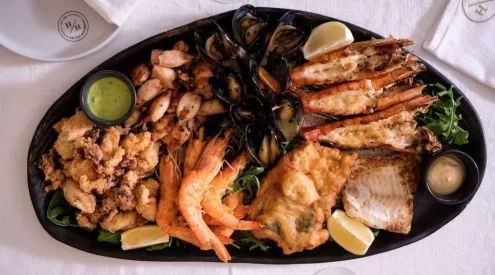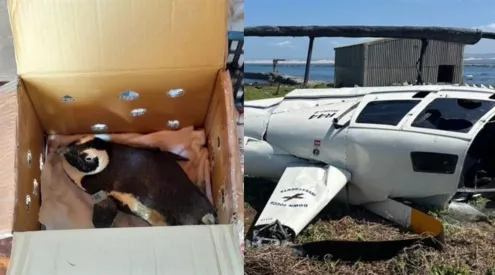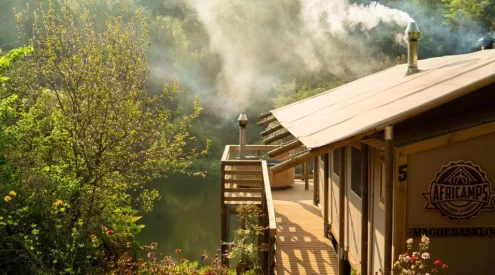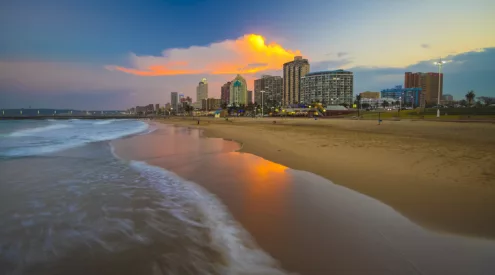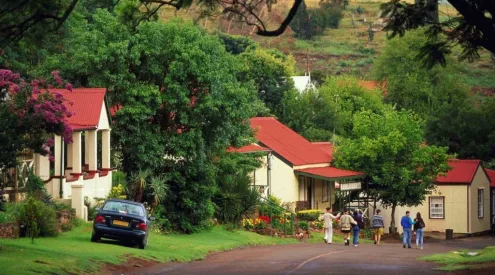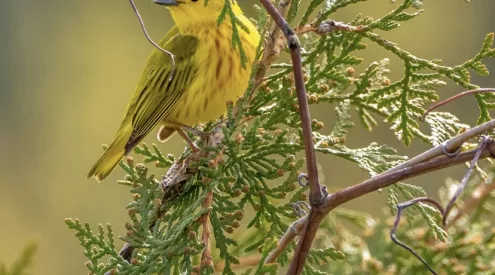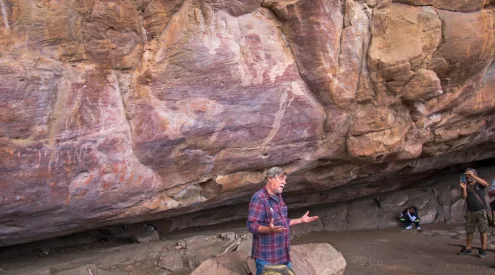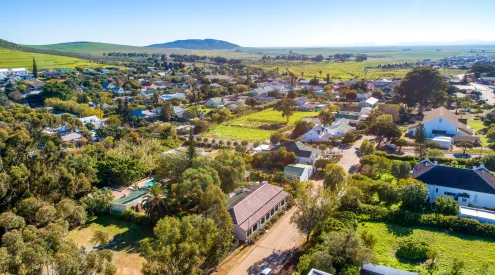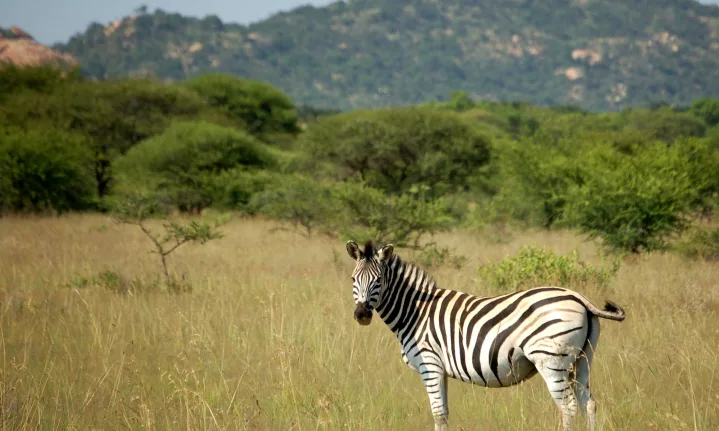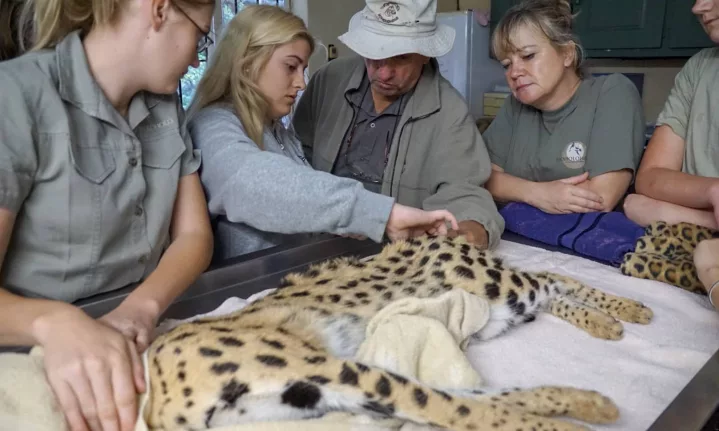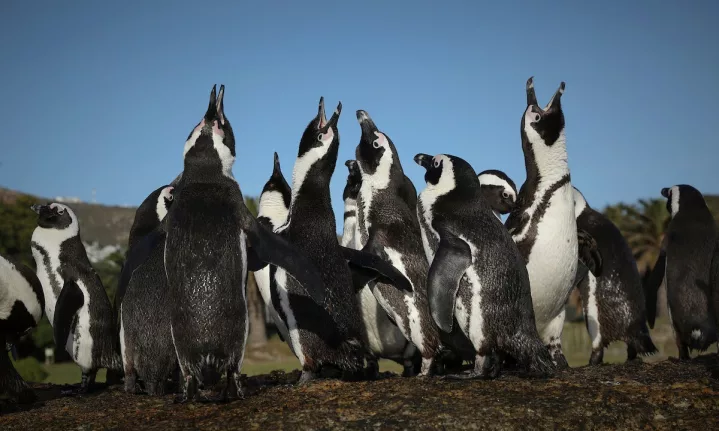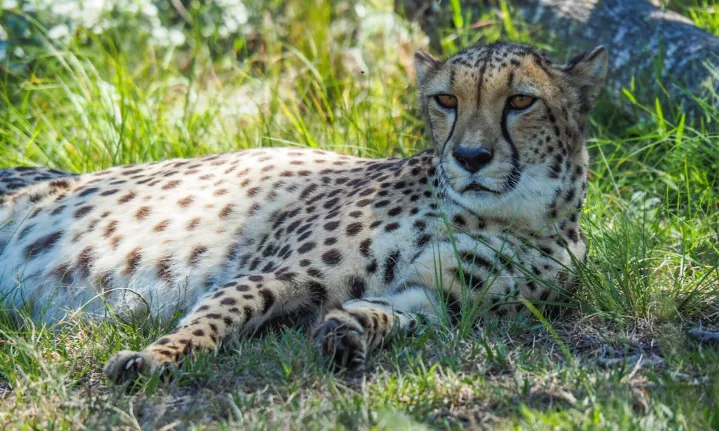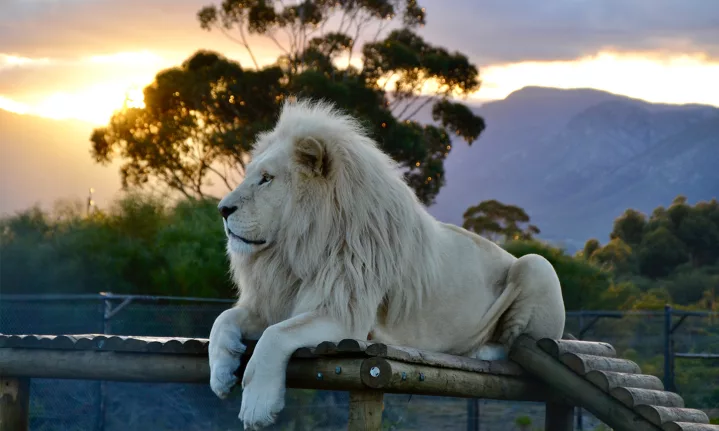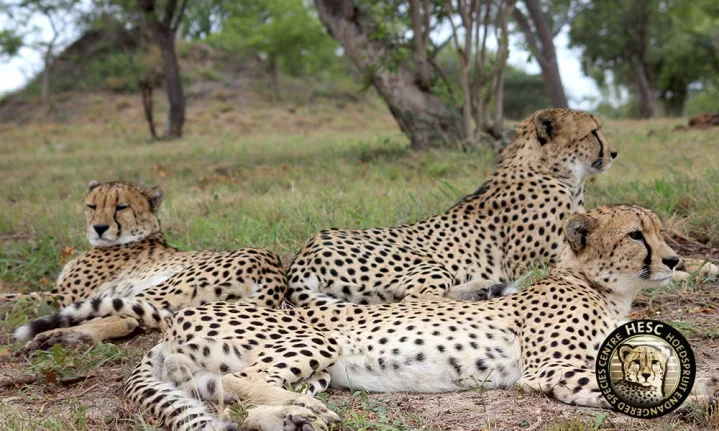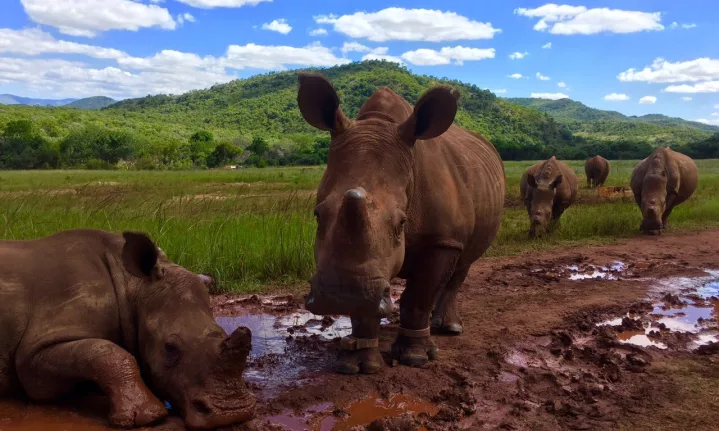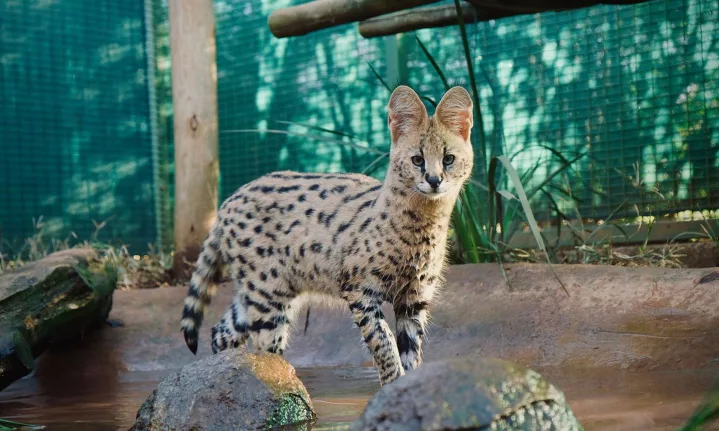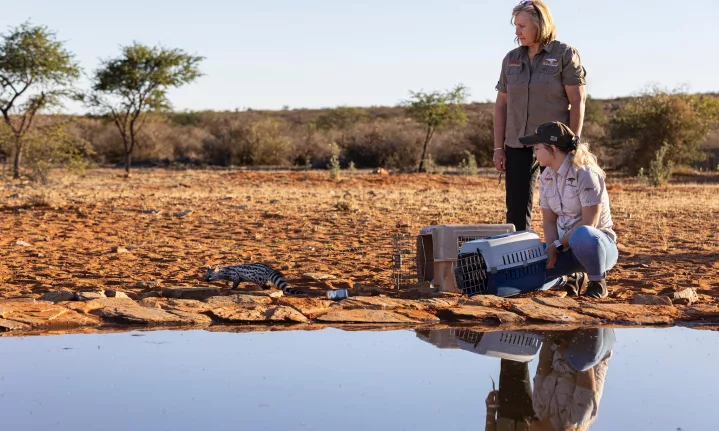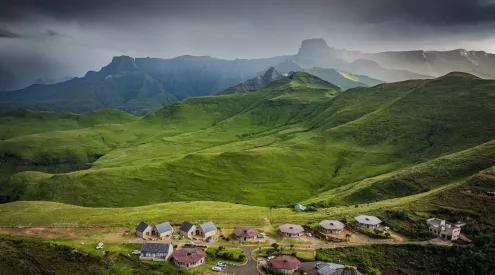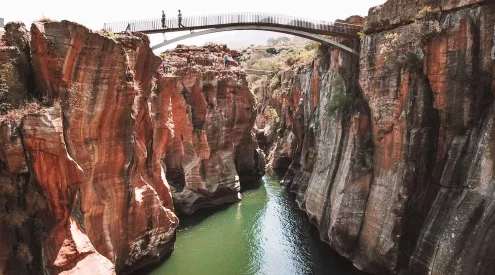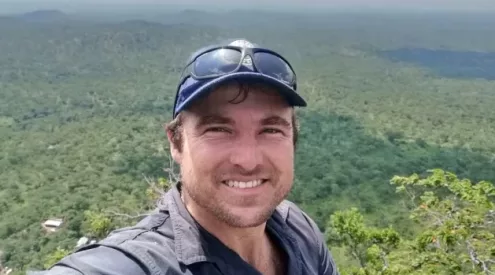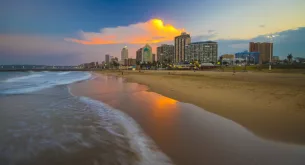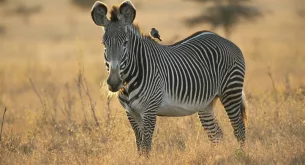Seeing a cheetah sprint through golden grasslands or witnessing a rhino calf nuzzle its caregiver might feel like a once-in-a-lifetime moment—and it is. But what makes these experiences even more powerful is knowing that your visit helps protect and heal these creatures.
As awareness around responsible tourism grows, more travellers seek ways to experience South Africa’s remarkable wildlife without contributing to exploitation or harm. Thankfully, the country is home to several rescue and rehabilitation centres that offer the chance to connect with animals ethically and educationally.
These sanctuaries are not petting zoos or entertainment hubs—they are spaces of recovery, learning, and hope.
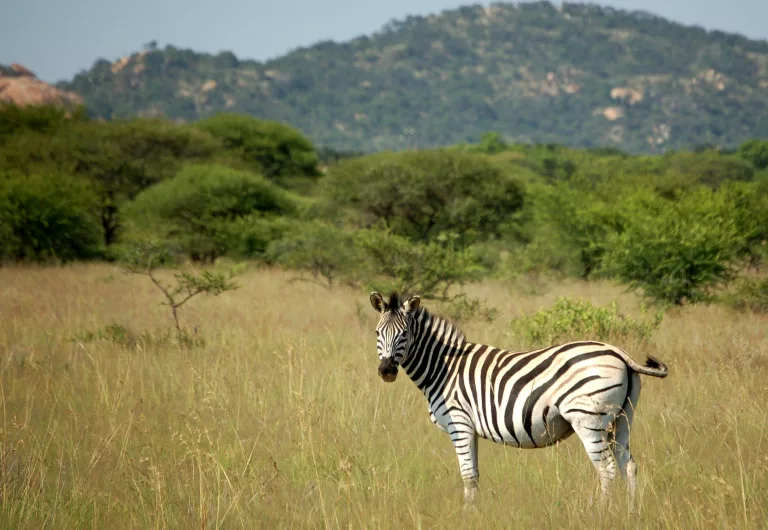
Matt Artz/Unsplash
What makes a centre ethical?
Not all animal experiences are created equal. Here’s what separates ethical centres from harmful ones:
- They prioritise rehabilitation and release of animals wherever possible.
- There is no breeding for trade or tourism purposes.
- Animals are not touched or handled by visitors, especially wild species.
- The centre is transparent about its operations and impact.
- Visits are focused on education and conservation, not performance or selfies.
ALSO READ: Safety in the wild: Addressing wildlife encounters in tourist areas
Ethical wildlife rescue and rehab centres to visit in South Africa
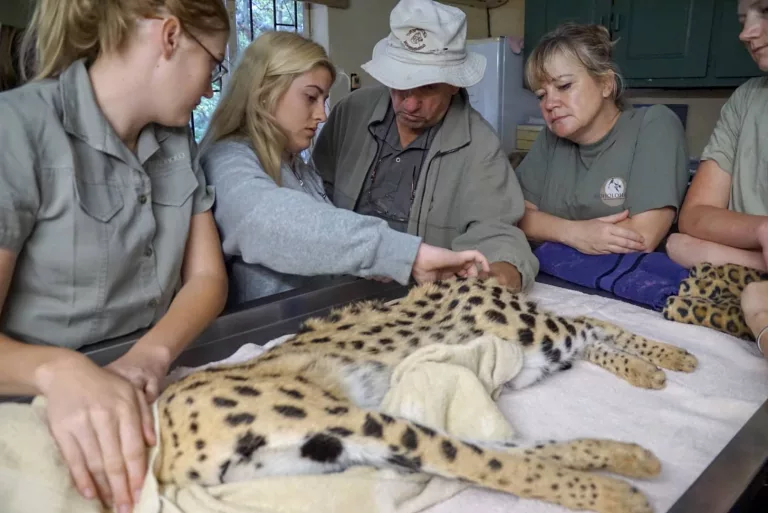
Picture/Moholoholo Rehab Centre
Moholoholo Wildlife Rehabilitation Centre – Limpopo
Nestled at the base of the Drakensberg mountains, Moholoholo has become a haven for injured, poisoned, and orphaned wildlife. From majestic eagles to elusive leopards, the centre rescues animals caught in the crossfire of human- wildlife conflict.
What to expect: Daily tours where guides share the real stories behind each animal’s journey. Expect to leave with a deeper understanding of conservation challenges in South Africa.
Website: moholoholo.co.za
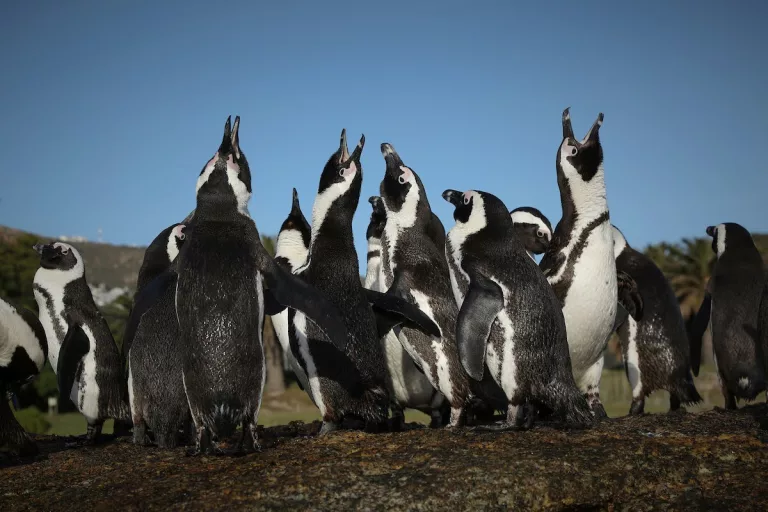
Picture/© Dan Callister
SANCCOB – Cape Town & Gqeberha
Best known for its tireless work with endangered African penguins, SANCCOB (Southern African Foundation for the Conservation of Coastal Birds) is a marine-focused rescue and rehabilitation centre that saves thousands of seabirds each year.
What to expect: Visitors can tour the facilities, observe penguins undergoing rehabilitation, and even adopt a seabird to support the cause.
Website: sanccob.co.za
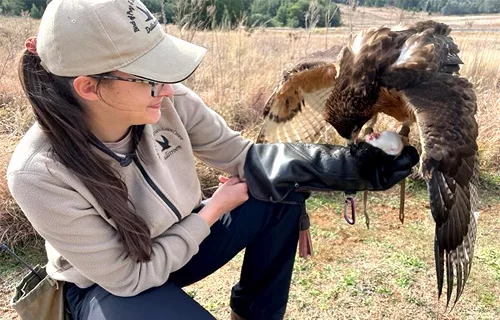
Picture/Giving More
Dullstroom Bird of Prey & Rehabilitation Centre – Mpumalanga
This centre offers a second chance for birds of prey that have been injured, poisoned, or displaced. The educational flight displays are designed to inform—not entertain—and many of the birds are eventually released back into the wild.
What to expect: Interactive yet respectful demonstrations, plus the chance to observe owls, falcons, and vultures up close.
Website: birdsofprey.co.za
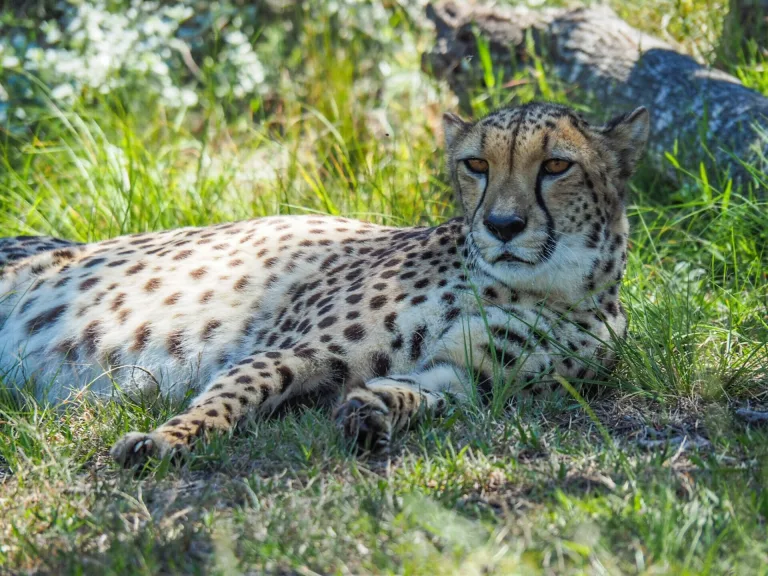
Picture/Brooke Beyond
Tenikwa Wildlife Rehabilitation Centre – Garden Route, Western Cape
What began as a small rehabilitation project for caracal kittens has grown into a respected conservation centre for various indigenous species. Located near Plettenberg Bay, Tenikwa promotes ethical wildlife awareness without hands-on interaction.
What to expect: Guided, educational tours through semi-natural habitats; strong focus on conservation messaging and animal welfare.
Website: tenikwa.com
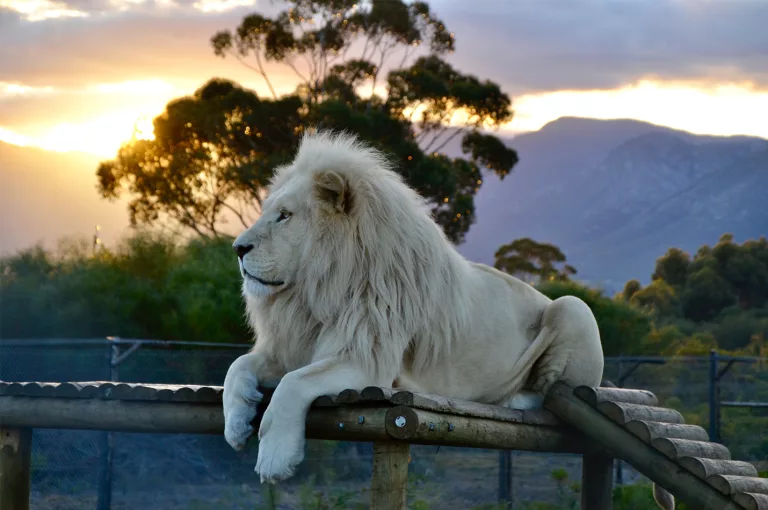
Picture/Hermanus Tourism
Panthera Africa Big Cat Sanctuary – Stanford, Western Cape
Rescued from circuses, zoos, and the canned hunting industry, the big cats at Panthera Africa now live out their lives in peace. The sanctuary is not open to petting or breeding—only peaceful observation.
What to expect: Insightful tours that teach visitors about ethical big cat care and the dark side of wildlife tourism.
Website: pantheraafrica.com
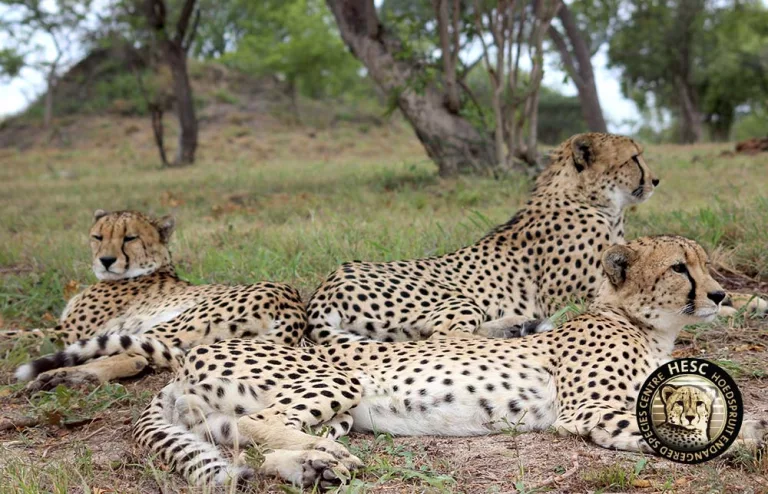
Picture/HESC
HESC (Hoedspruit Endangered Species Centre) – Limpopo
A pioneer in conservation, HESC focuses on the care and rehabilitation of endangered species like cheetahs, rhinos, and wild dogs. Their long-standing work also supports anti-poaching efforts and community education.
What to expect: Educational drives, immersive conservation tours, and the chance to meet some of Africa’s most threatened wildlife.
Website: hesc.co.za
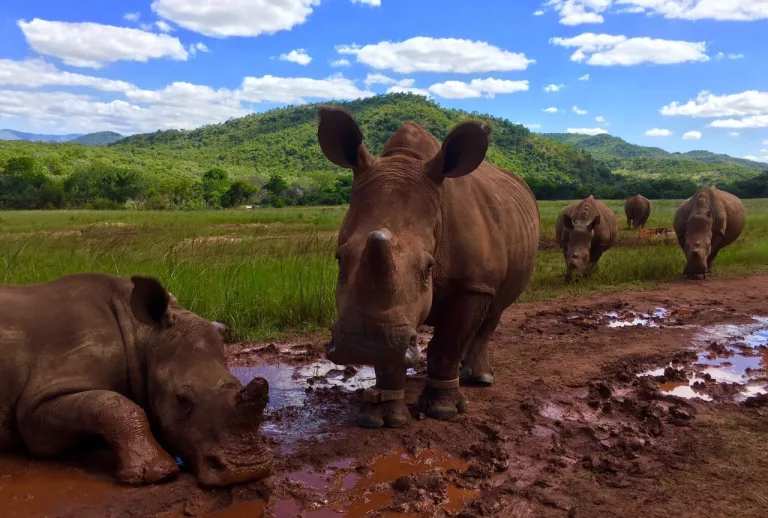
Picture/Baby Rhino Rescue
Care for Wild Rhino Sanctuary – Mpumalanga
As the world’s largest rhino orphanage, this sanctuary plays a critical role in saving rhinos affected by poaching. Each orphan is given specialised care, with the long-term goal of releasing them back into protected areas.
What to expect: Limited and highly controlled visits due to the sensitive nature of their work. Bookings are essential.
Website: careforwild.co.za
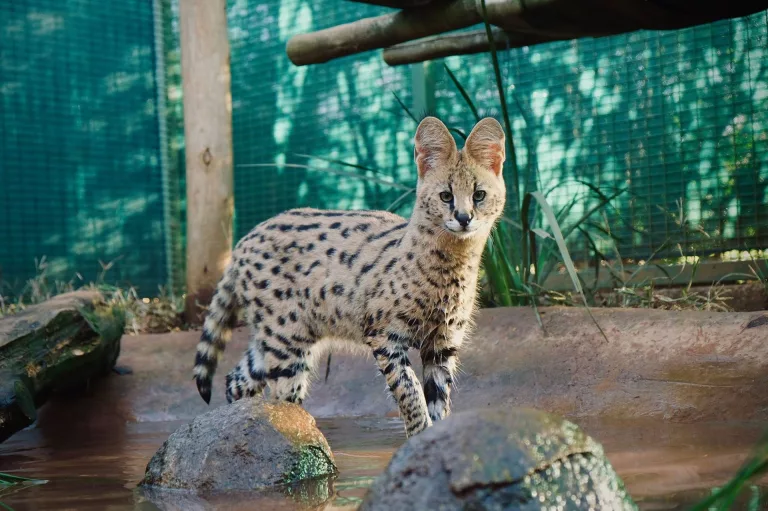
Picture/Free Me Wildlife
FreeMe Wildlife – Howick, KwaZulu-Natal
Located in the Karkloof Valley, FreeMe Wildlife rescues and rehabilitates small mammals, birds, and reptiles with the goal of rewilding every animal they treat. Their community education efforts and scientific data-sharing make them a leader in holistic wildlife care.
What to expect: While they don’t offer open public tours to avoid distressing animals, you can book seasonal guided experiences or attend their conservation talks and fundraising events.
Website: freemewildlife.org
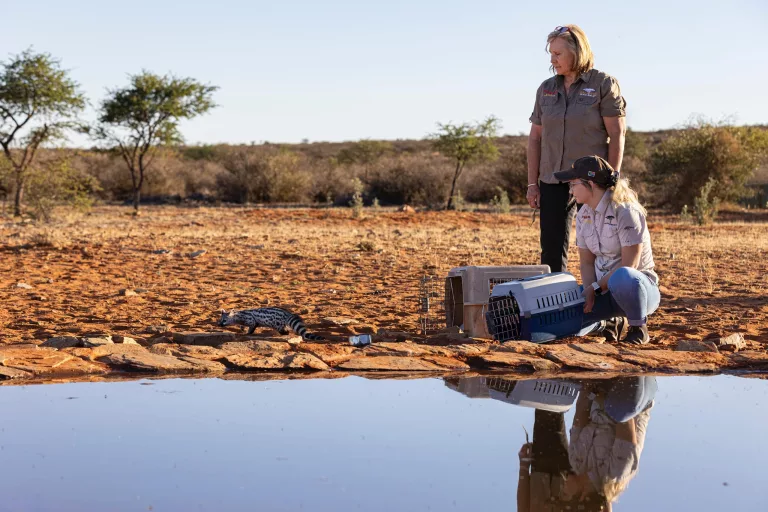
Picture/Facebook/Kalahari Wildlife Project
Kalahari Wildlife Project – Northern Cape
Tucked near Kuruman, this sanctuary specialises in rehabilitating injured and orphaned birds of prey. From barn owls to bateleurs, every bird that can be released is. The rest live out their days safely at the centre.
What to expect: Self-drive visits and guided educational walks focused on raptor conservation in the arid Kalahari region. Less commercial, more authentic.
Website: Kalahari Wildlife Project
Tips for travelling responsibly
- Always research the centre before visiting.
- Ask how your entrance fee supports animal care.
- Avoid any place that allows petting, riding, or posing with wild animals.
- Support rescue efforts by adopting an animal, donating, or volunteering.
- Share your experience to raise awareness around ethical wildlife tourism.
Responsible travel isn’t just about where you go—it’s about how you engage with the places and creatures you encounter. By visiting rescue and rehabilitation centres that prioritise animal welfare and transparency, you’re not just having an unforgettable encounter—you’re helping protect wildlife for generations to come.
So, the next time you’re planning a getaway, consider making space for an ethical wildlife visit. It might be the most meaningful stop on your journey.
Follow us on social media for more travel news, inspiration, and guides. You can also tag us to be featured.
TikTok | Instagram | Facebook | Twitter
ALSO READ: Lion makes midnight trip into family’s kitchen, panic follows

